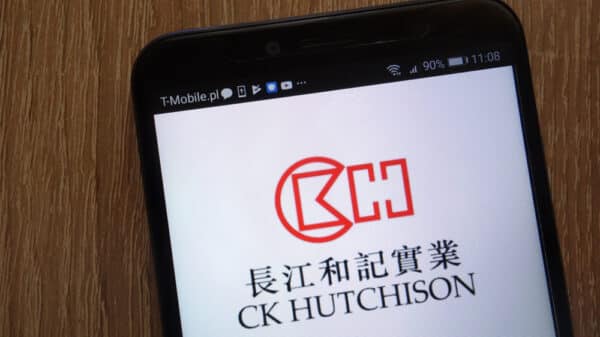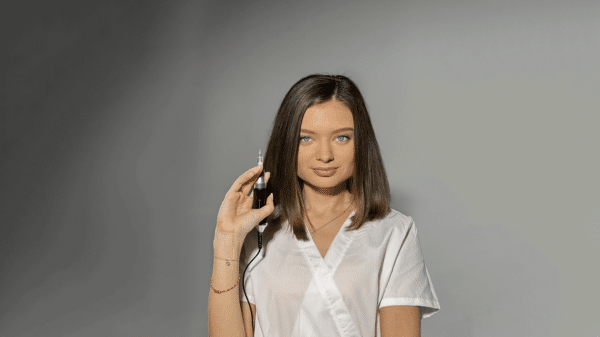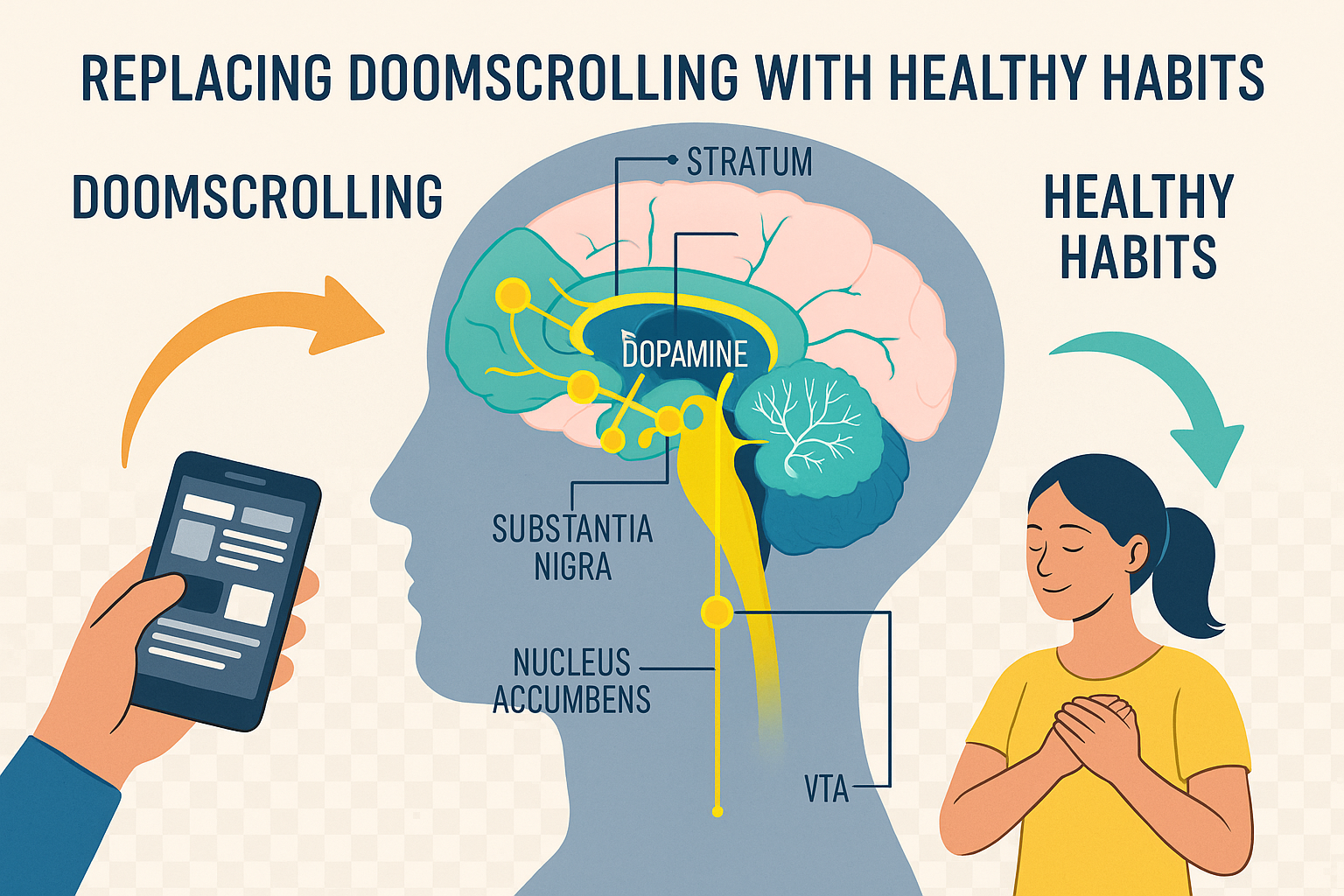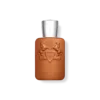Over the past five years, since short-form content became a staple on the biggest social media platforms, people have begun to notice its downsides. New terms like doomscrolling, brain rot, phone addiction, and short attention span have entered everyday language, reflecting the negative effects tied to its use.
The average person spends up to 6 hours a day scrolling on their phone — that’s more than 2,100 hours a year consumed by content most people won’t even remember. According to Statista, global social media users average about 2.5 hours daily, but among Gen Z and young adults, the figure can climb to five or six hours.
Social media platforms are intentionally designed to maximize time spent. Their algorithms serve up an endless stream of content, keeping users engaged for as long as possible. But is this really healthy for us?
Researchers have found that excessive scrolling can directly impact cognitive function. A review published in Frontiers in Psychology highlights links between heavy smartphone use and reduced attention span, memory, and problem-solving abilities. Another paper in Nature Reviews Neuroscience connects media multitasking with attention deficits and mind-wandering.
The effects go beyond focus. Social media use has been consistently associated with mental health risks. A study in the American Journal of Preventive Medicine found that young adults with high social media use were more likely to experience feelings of social isolation. Other research has linked prolonged screen time to lower self-esteem, destructive thought patterns, and increased risk of depression and anxiety.
Uliana Korolova, founder of ReBrain, explains that the app was born out of her personal struggle with excessive screen time. After realizing willpower wasn’t enough, she turned to behavioral science to build a rewarding system that worked.
“I’ve been a marketer for years, so my work has always depended on social media. The problem is, when your job is creating content and being online every day, you can’t just turn off your phone. I had to be on Instagram, TikTok, LinkedIn — but somewhere along the way, work scrolling would turn into doomscrolling. And I realized I was wasting hours every single day, just like everyone else.” – Uliana shared.
“I started digging into research and found out why it feels so hard to stop. Social media runs on the dopamine reward system — it literally trains your brain to crave the next scroll. And that’s when it clicked for me: the only way to actually break phone addiction isn’t through willpower or blocking apps, it’s by replacing the bad dopamine with healthy dopamine.”
“That’s how I came up with ReBrain. Instead of just cutting you off, the app makes you earn your scroll time by doing something productive or healthy first. It turns the same dopamine system that traps you into a system that frees you.”
With ReBrain, productivity and screen time are directly linked. The app uses a behavioral science–based rewarding system where healthy actions translate into minutes of scrolling:
- 1,000 steps = 5 minutes of screen time
- 10 minutes of focus work = 5 minutes
- 1 task completed = 5 minutes
- 10 minutes of reading = 10 minutes
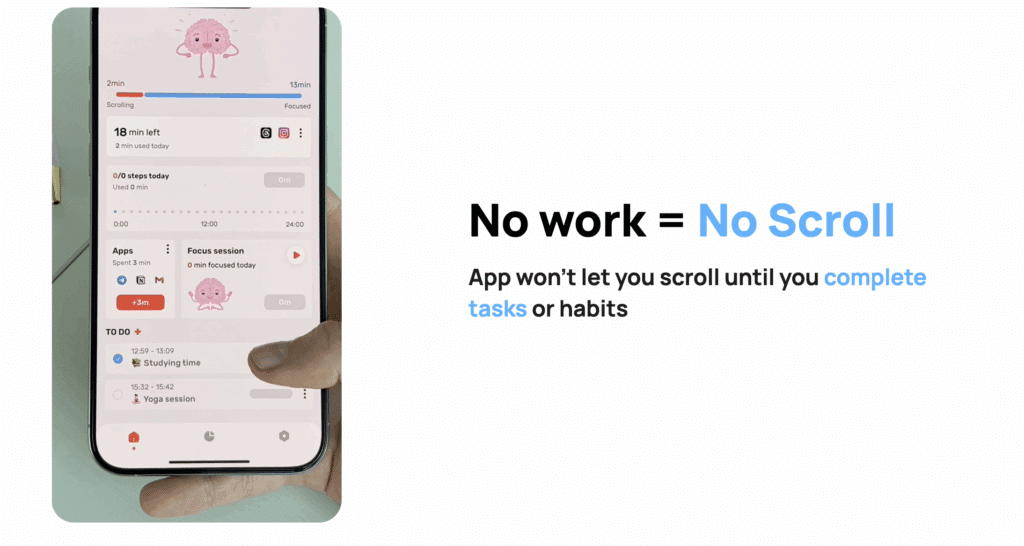
Unlike traditional blockers, ReBrain cannot be bypassed. The only way to unlock social media is by completing real tasks or healthy habits — turning dopamine triggers into motivation for better routines.
It may sound a little strict, like having a mom on your phone telling you to do your work… but users actually loved it!
“We gained 20,000 users in the first week after launching our app, along with many positive reviews of this new approach. I was so excited to see how well the system worked for others too — helping them cut down screen time and become more productive throughout the day.” – Uliana shared her insights.
As a tech marketer known for making apps go viral every month, Uliana applied her own strategies to ReBrain. By creating and sharing creative content that showcased the app, she attracted thousands of users organically. This rapid growth proved not only the strength of her marketing approach but also that the app’s idea resonated deeply—tapping into the modern struggle with endless scrolling and the need for healthier digital habits.
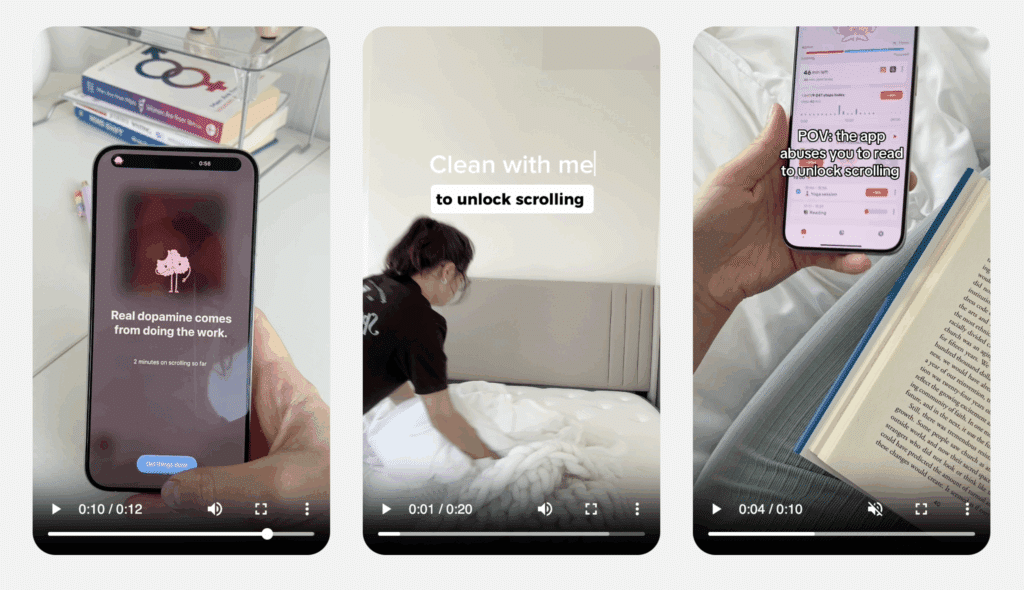
From the very first days, early adopters of ReBrain began sharing their stories of using the rewarding system:
“This app genuinely works so good it’s so frustrating but it honestly just shows how much time blindness I really have— and if I DO want to/have to use any socials I need to ration my time wisely and I can’t just doomscroll 😭 there’s no way to even take off a distracting app without doing something productive for at least 20 minutes and on weekends it’s harder to get time but it really forces me to actually do stuff like my homework or read my fun books which is great because once I get into a rhythm then it’s a lot easier— the hardest part is always starting lol.”
“I’ve only been using it for a few days, but it’s absolutely lit. I already know I have to “earn” my time on social media and focus on my to-do list first. It’s also sped up my SMM tasks since I’ve got a limited window to get them done.”
“I loved the concept of trading productivity for scrolling so much and got addicted to this system very fast. I use To Do lists and healthy apps much more often now and honestly it makes me much more productive and more proud of myself at the end of the day!”
From AppStore’s testimonials
This new approach empowers people to retrain their dopamine patterns, shifting their focus toward healthier habits and greater productivity.
ReBrain is emerging as one of the first apps to address doomscrolling through behavioral science rather than simple restrictions. By harnessing the dopamine system itself, founder Uliana Korolova has introduced a model that turns social media use into a reward for healthier, more productive actions.
The early response — thousands of users within days of launch — shows that doomscrolling is not a niche frustration but a common struggle. The demand reflects a broader need for tools that can turn the attention economy’s challenges into opportunities for focus and productivity.



